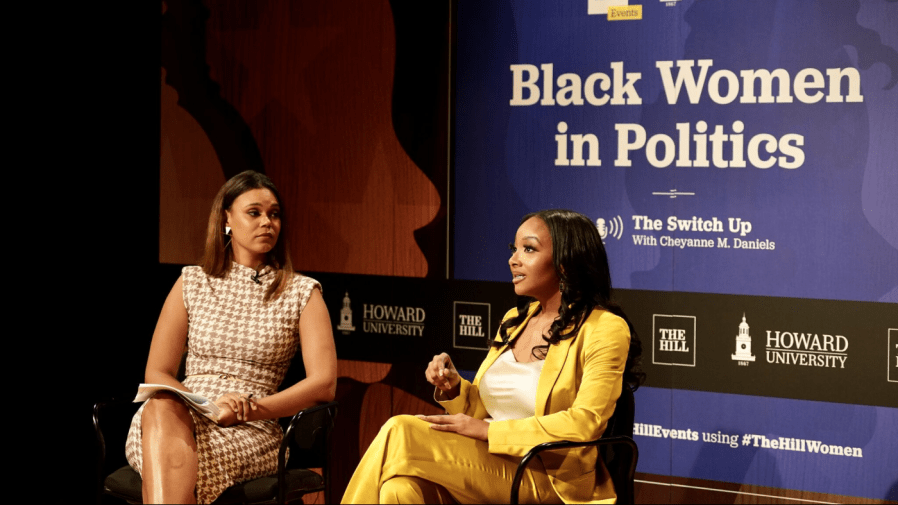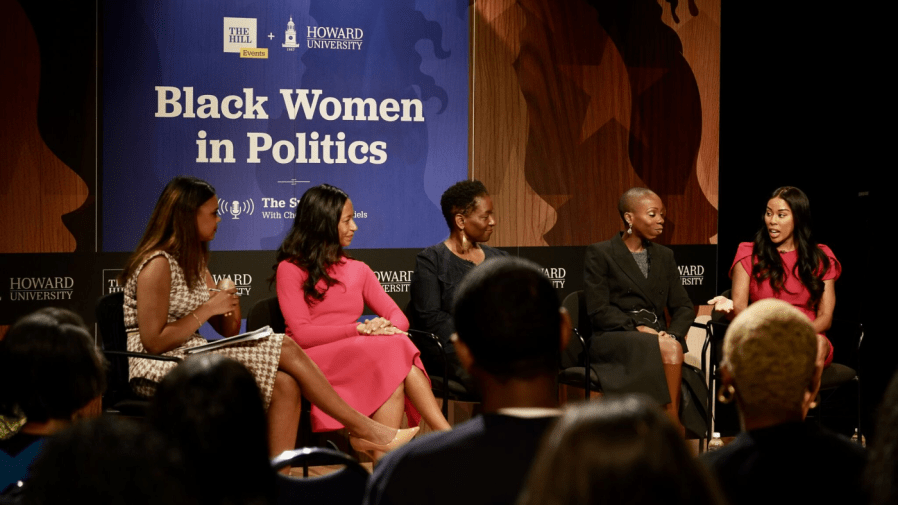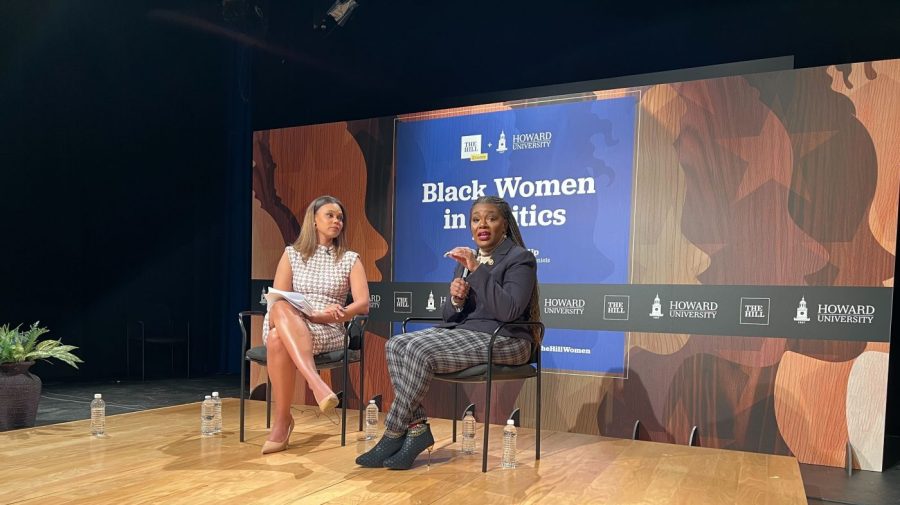Stacey Abrams, Cori Bush join advocates in push for a bigger seat at the table for Black women
Black women are becoming increasingly more visible in politics, but a bipartisan group of advocates who have served in positions of power across the country say representation is still lacking.
“Our representation matters, because it’s the way we get to the American Dream that we’ve all been told we are entitled to,” former Georgia House Minority Leader Stacey Abrams (D) said Thursday at The Hill’s “Black Women in Politics” event, hosted in partnership with Howard University and The Switch Up podcast.
“So, either we change the ethos of this nation, or we change the process that makes it so, and my intention is to change the process. That’s why I worked so hard to make certain we can all vote that we can participate, irrespective of who you vote for,” she continued. “You should have the right to be heard.”
Abrams, who stepped into the national spotlight after running gubernatorial bids against Georgia Gov. Brian Kemp (R) in 2018 and 2022, emphasized that adequate representation across all levels of government is essential to enacting meaningful change.
“We know that there is an intentional devolution of power from the federal to state level,” Abrams said. “That means that if you want to understand what is changing the policies or constraining your access to opportunity, it is at the state level.”

Whitley Yates, the Indiana GOP’s director of diversity and engagement, speaks with The Hill’s Cheyanne M. Daniels on Thursday, March 21, 2024, at Howard University in Washington, D.C. (The Hill)
But it’s not just a question of securing Black women in positions of political power, Whitley Yates, the Indiana GOP’s director of diversity and engagement, pointed out.
“The truth is that when you look at other Black Republican women that have been given a microphone, a lot of them are not representative of a majority of what black women feel and what we’re experiencing,” Yates told The Hill at the event.
According to the Center for American Women and Politics, 5.4 percent of all voting members of Congress identify as Black women. Similarly, Black women make up just 5.2 percent of state legislators.
For the past four years, Yates has led the Indiana Republican Diversity Leadership Series, hoping to engage underrepresented minorities within the GOP and empower Black leaders dedicated to delivering results based on the issues impacting their communities most.
She said Thursday that this requires not just having “diverse voices” present but also being mindful of who is at the table.
“I also believe that there should be strong intentionality placed on having substantive leaders at the table,” Yates said. “And that substance comes from how they’re able to progress their communities through policies that are impactful.”

Panelists Gabrielle Wyatt, Adrianne Shropshire, Roxy Ndebumadu and Kimberly Klacik discuss why representation in politics matters for Black women with The Hill’s Cheyanne M. Daniels Thursday, March 21, 2024 at Howard University in Washington, D.C. (The Hill)
Maryland Councilwoman Roxy Ndebumadu (R), who made history as the youngest woman elected to serve on the Bowie City Council and the first African American woman to represent the region, also highlighted the importance of being community minded.
“I grew up in the community,” Ndebumadu said during a panel discussion. “I was passionate about that community. I saw what happened to my community when certain people got into power.”
“I felt like the community was going in a different direction,” she added. “And I said, ‘If not me, then who?’”
Abrams echoed these sentiments, urging Black women to not only seek out positions within local and state government, but feel empowered by their own lived experiences.
“Our responsibility as Black women in politics is to make politics work for everyone,” Abrams said.
“Those who have faced the worst examples of bad politics are the ones who are best prepared to make the most effective means of advancement and improvement,” the former state lawmaker continued. “There’s no one better to remove the barriers than the person who ran into them.”

Rep. Cori Bush (D-Mo.) speaks about the Equal Rights Amendment and representation for Black women in politics with The Hill’s Cheyanne M. Daniels Thursday March 21, 2024, at Howard University in Washington, D.C. (The Hill)
Rep. Cori Bush (D-Mo.), who has been outspoken in her quest for equal rights, acknowledged, however, that there are still many barriers for Black women attempting to enter the political arena.
“What they want is to silence us … they want to shut us down and keep the status quo,” Bush said, citing instances where she has been forced to close her office in St. Louis as a result of hate directed toward her and her staff.
However, as co-chair of the Equal Rights Amendment (ERA) caucus, the lawmaker remains committed to championing women’s rights and voices, particularly those who she now says have the most to gain should the Equal Rights Amendment (ERA) be enshrined in the U.S. Constitution.
“I think I felt like this was something for white women to champion until one day I realized that so many of the things that we are working on, that Black women are fighting for or where so many of these disparities lie, are all under what the ERA would do,” she said.
Bush’s work alongside Rep. Ayanna Pressley (D-Mass.) to revitalize the ERA marks the first time in its 100-year history that the legislation has been “carried” by Black women, a moment that she and others said is symbolic of the power held by their collective voice.
“We’ve got to own our authority to do what needs to be done without needing other people to say it’s the right thing to do,” Abrams said, adding, “I operate in a space where I just don’t ask for permission, and sometimes I ask for forgiveness.”
Since founding the hybrid political action committee Fair Fight in 2018, Abrams has striven to combat voter suppression and mobilize Black voters, particularly across the Peach State — a battleground likely to be pivotal in the 2024 presidential election.
“Voting is not magic; voting is medicine,” Abrams said. “There are ills in our society. There are challenges that we face, and we need to take medicine to ameliorate the consequences to make us better.”
“We have to consistently engage in voting because voting in and of itself is not the point,” she added. “It’s not about who’s on the ballot. It’s about who is in the booth.”
Copyright 2024 Nexstar Media Inc. All rights reserved. This material may not be published, broadcast, rewritten, or redistributed..













